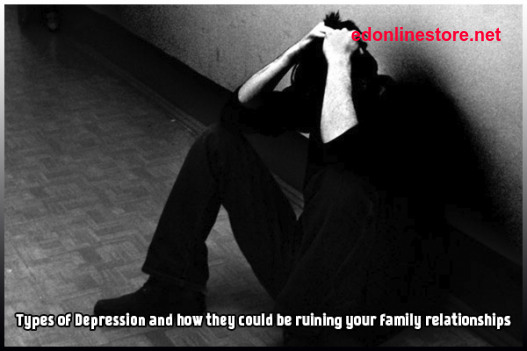
Depression, It’s Causes, And The Best Treatments Available
What is depression?
The word “depression” can be used in many ways. To most people, depression is a mood that may last from hours to years, marked by sadness, tiredness, lethargy, and changes in appetite, sleep patterns, and sexual desire. The word can also be used in a casual way as a synonym of disappointment or dejection, as mildly as as “I was depressed that my favorite team lost the game last Sunday” to as sever as “I was depressed that my mother died”. Psychologists, psychiatrists, and counselors use the term depression in a much more specific way, to denote one of several mood disorders that can be diagnosed and treated. Classification schemes differ by country, time period, and medical standards used, but there are generally two main types of depression recognized by professionals:
- Dysthymia – Dysthymia (which may also be called persistent depressive disorder) is a less severe type of depression, but the symptoms typically last for longer. You could describe dysthymia as a decreased mood, and a chronic disorder that some sufferers will not recognize as a disorder, but may consider to just be part of their personality. Generally, people suffering from dysthymia will suffer from a low mood, a feeling of being helpless, low (or high) appetite, feelings of worthlessness or low self esteem, sleeping too little or too much, and a loss of interest in activities that they used to enjoy (sex being particularly notable). People who are diagnosed by dysthymia must meet a certain specific set of symptoms for two years or more. Someone with Dysthymia may be seen by themselves or others as not suffering from a disorder, but just sort of a “downer” in personality.
- Major Depressive Disorder – As the name indicates, Major Depressive Disorder is the more serious of the two main types of depression. You can think of it as having most of the same symptoms of Dysthymia, but just much more severe, and sometimes with other symptoms being present, such as false beliefs or hallucination. Someone with Major Depressive Disorder, as opposed to Dysthymia, may experience a complete loss of all pleasure (as opposed to dysthymia, where there is just a general loss of interest). The low self esteem of helplessness experienced in Dysthymia may be experienced by someone with Major Depressive Disorder as an obsession with their own worthlessness, hatred of self, an overpowering feeling of guilt about decisions that do not warrant it, and suicidal ideation. This type of depression also has many subtypes, including Atypical Depression, where the sufferer experiences some enjoyment in activity as well as other diagnostic differences, Catatonic Depression in which the sufferer is so despondent that they become catatonic, Seasonal Affective Disorder in which the depression appears or worsens with the change in seasons, and several other types.
Who suffers from depression?
Anyone can suffer from depression, but there are some differences in rates based on age, sex, nation of residence, and other factors. It is not well understood what might be the cause of these differences, but women tend to suffer from Major Depressive Disorder more than men, and diagnosis has been increasing in recent years in most countries. In The United States, about 17% of the population will experience a Major Depressive Episode at some point in their lives. In Japan, the rate of the same disorder is much lower, only 3%.
What causes depression?
Experts are split about the causes of depression. Many practitioners recognize that there is very likely a genetic factor involved, as depression seems to run in families, and studies of twins have found that identical twins (sharing 100% of their DNA) are more likely to share their diagnosis or lack of it than two fraternal twins (sharing only 50% of their DNA). This doesn’t mean that it is entirely genetic, and DNA could even prove to be a very minor component. Quality of social support systems, abuse, and stress due to major life events (such as the death of a pet, friend, or family member) are noted and obvious contributors to depression.
What treatments for depression are available?
Today, many treatment options are available for depression. One of the most common is medication. There are many types of medications, and the most widely available are of a class called SSRI (selective serotonin reuptake inhibitor). As with any medication, there are side effects, which impact some people more than others, and many people try a few different medications before they find one that works for them. Therapies such as talk therapy, cognitive behavior therapy, and group therapy has also provided relief to many. In extreme cases, electroshock therapy has been used with great success. Several new types of therapies are under investigation as well. For example Transcranial Magnetic Stimulation, in which a magnetic pulse is applied to the brain, has shown some success. Ketamine, an anesthetic and recreational drug, has been shown in some trials to relieve depression symptoms almost immediately when administered in a clinical setting by a professional. The FDA recently approve a drug called esketamine (which is nearly equivalent to ketamine) in nasal spray form for treatment of depression.
depressions effect on the body, how to fight depression naturally, how to identify depression, is depression treatable, medication for depression, why am i depressed